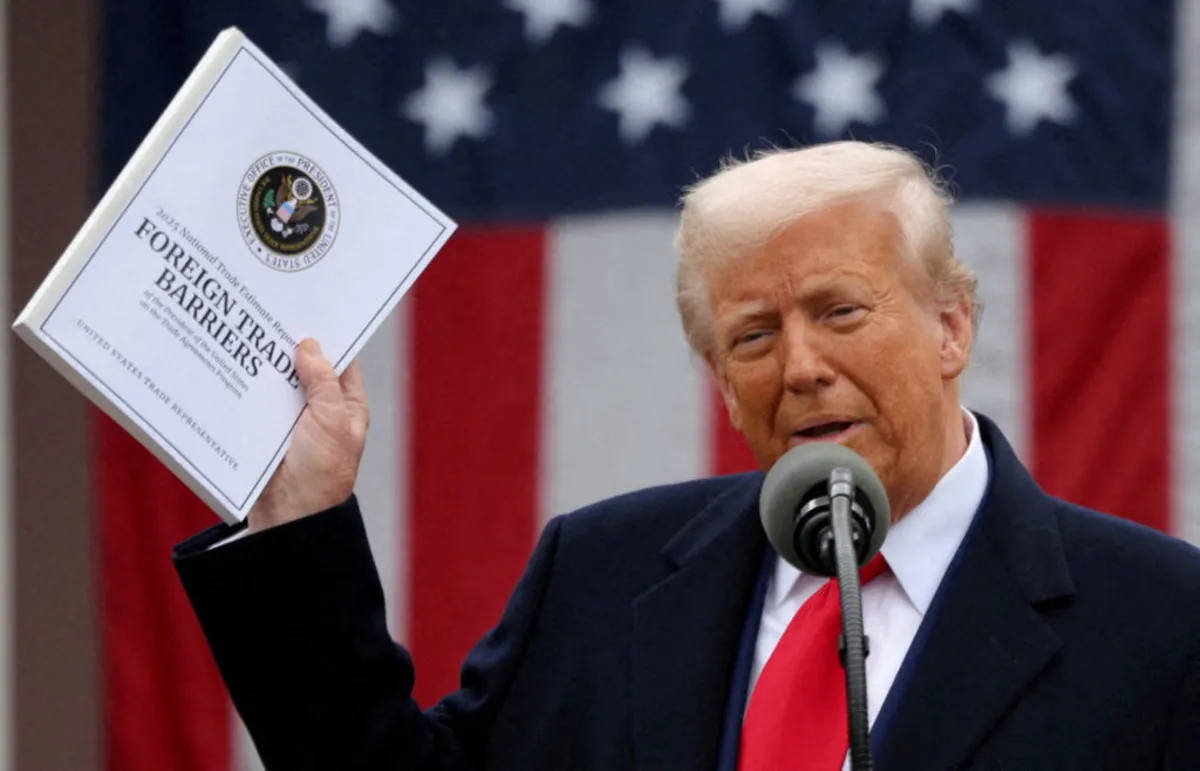
On Sunday, senior administration officials announced that over 50 countries affected by President Donald Trump's new tariffs have initiated negotiations regarding the sweeping import taxes. These tariffs have not only unsettled financial markets but also raised fears of a potential recession and disrupted the global trading system.
The new higher tariff rates are scheduled to take effect on Wednesday, signaling the start of an uncertain economic landscape without a clear resolution in sight. Treasury Secretary Scott Bessent emphasized that unfair trade practices cannot be resolved “in days or weeks,” adding that the United States must evaluate the offers from these nations to determine their credibility. Meanwhile, President Trump, who spent the weekend golfing in Florida, expressed his confidence on social media, stating, “WE WILL WIN. HANG TOUGH, it won’t be easy.”
Administration officials, including Trump's Cabinet members and economic advisors, have been actively defending the new tariffs while downplaying their potential impact on the global economy. Bessent remarked, “There doesn’t have to be a recession,” highlighting the unpredictability of market reactions over time. He stated that the administration's focus is on establishing long-term economic fundamentals for prosperity.
Trump’s tariff initiative, which was announced on April 2, fulfills a significant campaign promise and represents a long-standing goal of his administration to reshape global trade. The President believes that American voters will accept higher prices for everyday goods in exchange for his vision of economic reform. In response to the tariffs, countries such as China have quickly retaliated, indicating a heightened level of global tension.
In light of the tariffs, nations are actively seeking ways to respond. Top White House economic adviser Kevin Hassett noted that while other countries are “angry and retaliating,” they are also eager to engage in negotiations. He revealed that more than 50 nations have reached out to the White House to begin discussions. Notably, American allies like Israel and Vietnam are also affected, with Israel facing a 17 percent tariff and Vietnam expressing a desire to reduce tariffs to zero if an agreement can be reached.
The tariffs have generated mixed reactions within Congress, where Trump's Republican Party has traditionally supported free trade. While some Republican senators have applauded the tariff measures, there is growing unease regarding their long-term implications. A bipartisan bill has emerged that would require presidents to justify new tariffs to Congress, which must approve them within 60 days or they would expire. Nebraska GOP Rep. Don Bacon is set to introduce a similar measure in the House, advocating for a restoration of Congressional powers over tariff decisions.
Amidst the ongoing discussions, Wyoming Senator John Barrasso acknowledged the concerns shared by many Americans regarding market reactions. He stated, “There is concern, and there’s concern across the country. People are watching the markets.” With economic indicators like inflation and unemployment becoming increasingly critical, the discussion around tariffs continues to evolve.
Elon Musk, a key figure in Trump's administration, has suggested a move towards a “zero-tariff situation” between the U.S. and Europe. However, this stance drew criticism from White House trade advisor Peter Navarro, who remarked that Musk’s comments reflect a conflict of interest. Additionally, renowned economist Lawrence Summers highlighted the inconsistent messages from Trump’s economic team, suggesting that if the U.S. eliminates its tariffs while others do the same, it could undermine the intended economic benefits.
As discussions evolve and negotiations continue, the implications of Trump’s new tariffs on the global economy remain a focal point of concern among lawmakers, economists, and international leaders.